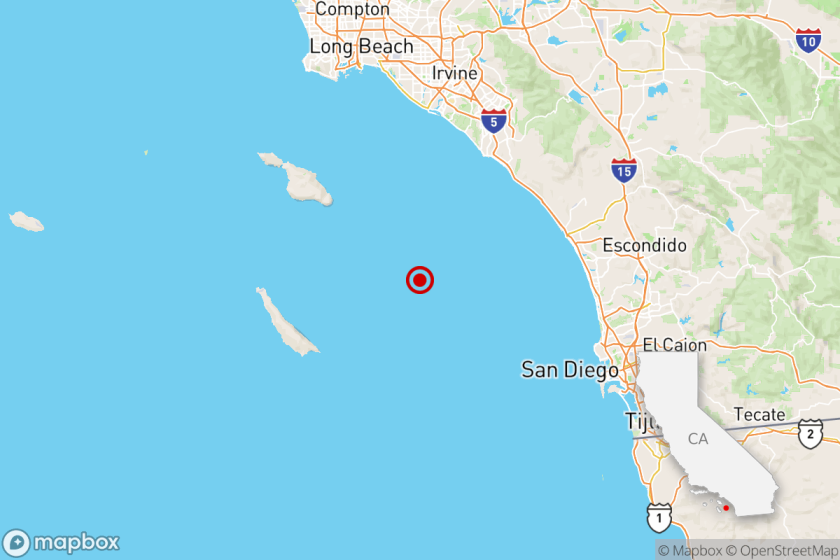Program Helps Turn Renters Into Homeowners : Rebuilding: The California Housing Financing Agency offers special loans to certain earthquake victims.
The January earthquake wasn’t all bad for Bruce and Ellen Mirovich.
The couple had the misfortune of losing many personal belongings and they had to move out of their Simi Valley apartment, which was yellow-tagged by city officials. With the help of a state-sponsored program, however, the Miroviches are property owners instead of renters. Through the California Housing Financing Agency, the couple moved to Moorpark in September to a buy a brand-new $129,500 condo with no money down and financed for 30 years at a fixed interest rate of just 5.95%.
While the Miroviches did need to come up with about $3,000 in closing costs, the $1,075 monthly payment on their condo is only $25 a month more than they were paying as renters in Simi Valley. Allowing for tax benefits, the couple will actually be paying less to own than to rent.
“We’ve been married for 22 years and we’ve always been renters,” Bruce Mirovich said. “Becoming homeowners has been a major change in our lives.”
The Miroviches made use of a little-known state-sponsored program that provides low-interest and low down payment loans to certain individuals and families who suffered damage as a result of the Northridge earthquake. “We’ve tried to inform the public, but it’s amazing how many people don’t know we’re here and what we offer,” said Jeannie Buchanan, spokeswoman for the California Housing Finance Agency in Sacramento.
CHFA’s earthquake-related loans were announced in the spring but most borrowers never learned about them, said John Lucas, vice president and branch manager at ARCS Mortgage Inc. in Van Nuys. ARCS has funded more than 30 CHFA earthquake loans, but only recently have would-be borrowers started really getting interested in the program. “It’s been the forgotten loan program,” he said.
According to CHFA, there is $75 million set aside for earthquake-related loans for renters. Only one-third of that money has been committed to loans so far, however. That leaves about $50 million in unused funds, Buchanan said. The agency said it will probably close out the quake loan program by the first anniversary of the Northridge quake Jan. 17.
CHFA uses mortgage revenue bonds to buy loans from lenders statewide. Lenders approved by CHFA are able to offer special terms to buyers who have suffered earthquake damage, who are of moderate income or who are buying a so-called target area that has been identified by the federal government as needing assistance. “There are a whole bunch of wrinkles to these things,” Buchanan said.
There are several possible ways to tap into the CHFA program:
* First-time home buyers who were renters during the earthquake may qualify for a CHFA loan if they can document serious damage to their rented premises, or if their rented home or apartment was red- or yellow-tagged in the aftermath of the earthquake. It’s worth noting that first-time home buyers are defined as renters who haven’t owned a home in the last three years, but they don’t actually have to be first-time buyers.
But there are income limits to keep in mind. A family in Los Angeles County of one or two people can’t earn more than $55,700 and qualify for a CHFA loan; families of three or more can make up to $64,500 and still qualify. The income limits in Ventura County are higher, especially for borrowers who want to buy a home in a target area.
There are also purchase price limitations, based on the county where the residence is being purchased and whether the home is newly built or a resale. Existing homes in non-target areas in Los Angeles County, for example, have a maximum purchase price of $196,200.
* Owners or renters who can document that their premises were damaged in the earthquake may also qualify for a CHFA loan if they are looking to buy in a target area. In the San Fernando Valley, target areas include parts of Pacoima, North Hollywood, Panorama City, Van Nuys and Arleta, among others. Because the target areas may only cover certain blocks, it’s best to check with a lender to find out more specifics. Certain other income and purchase price limitations also apply.
* Borrowers can apply for a CHFA loan under either Federal Housing Administration, Veterans Administration or conventional CHFA guidelines. Each application method has its own underwriting and insurance guidelines. CHFA basically acts as the investor in these loans and the insurer is either the FHA, VA or the California Housing Insurance Fund (the state agency that insures conventional CHFA loans).
Borrowers who opt for a CHFA loan insured by FHA must pay up-front 2.25% (although this can be financed as part of the loan) of the purchase price, and another 0.5% per month for FHA’s mutual mortgage insurance. VA-insured loans require a 2% of the purchase price funding fee but no monthly add-on. Conventional CHFA loans are generally limited to a 95% loan-to-purchase price, with a 0.55% monthly insurance payment. Note that all CHFA loans have some sort of income and purchase limitations. Also, all CHFA loans require that 1% of the loan be paid as a fee to the loan originator, or lender.
* People who owned homes damaged in the earthquake may also qualify for a CHFA loan if they buy a replacement residence in a targeted area. Various restrictions apply.
The CHFA also has a list of approved lenders that is available to would-be borrowers.
For information, call the CHFA toll-free at (800) 789-CHFA.
More to Read
Sign up for Essential California
The most important California stories and recommendations in your inbox every morning.
You may occasionally receive promotional content from the Los Angeles Times.









